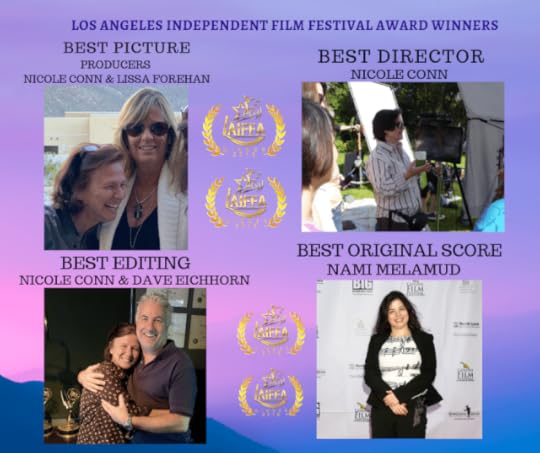Kenneth Atchity's Blog, page 93
July 16, 2019
Blogcritics Reviews How to Quit your Day Job and Live Out Your Dreams
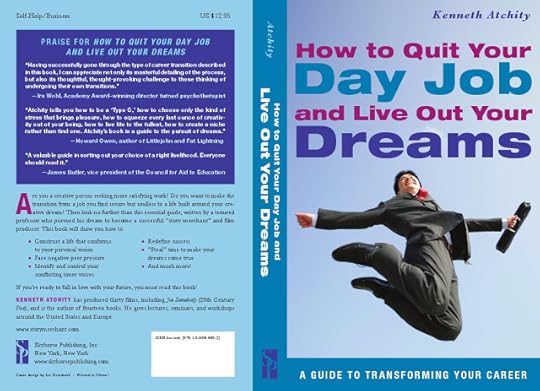
Are you in an unsatisfying job and would like to get out of your current line of work? Do you want to transition from a job that is secure but soulless, from a life that is created by others to one that is created by you which allows you to follow your creative dreams? If you do, this book is for you.
Kenneth Atchity was also in a job he despised. He was a tenured professor. He should have been on top of his game and happy. He had security, and everything he wanted financially. But he was still fundamentally unhappy because he felt drained and didn’t feel as if he was fulfilling his creative purposes in life. How sad? He always wanted to be a story merchant and film producer. Then one day he dared to take the necessary steps to make his dreams come through. And this is how the idea for this book was born.
Kenneth Atchity’s book is for everyone who feels that their creativity has been squelched at their current line of work. How to Quit Your Day Job and Live Your Dreams will show the reader how to create a personal vision and recreate your life so that it fulfilling your vision, face negative peer pressure, identify and control conflicting inner voices, redefine what it means to live successfully for yourselves, steal time to make your dreams come true, and a lot more. The book is full of advice for the person who is still working at a dead end job and wants to take fruitful steps to get out. Kenneth Atchity shows the reader how to do this through consistent planning, a bit of hard work, and perseverance.
The good news is that we can all reclaim our lives, and we don’t have to stay in dead end jobs for the rest of our lives and live unhappy and unfulfilled days. We can be bold and recreate our lives so that they are what we want them to be. So, if you want your life to change for the better, pick Kenneth Atchity’s book today and get ready to transform your life one step at a time.

Published on July 16, 2019 00:00
July 14, 2019
What is “Coverage” and How Does It Affect Whether My Book Sells to Hollywood? by Kenneth Atchity

I read part of it all the way through.—Samuel Goldwyn
The Hollywood decision-maker who receives your story submission rarely has time to read it him- or herself. They assign it “for coverage” to the story department, and receive back a coverage. “Coverage” is the term used in Hollywood for the document that determines the fate of most story submissions. It’s a document, created by a story editor, in the story department of an agency, production company, studio, or broadcaster that analyzes your story’s film-worthiness. A typical coverage includes a “grading system” something like the following that suggests that the submission (screenplay, novel, nonfiction book, or treatment) is:
PASS— Nothing to spend more time on. So the executive who receives this recommendation returns the submission.
RECOMMEND— The grade you’re looking for. The executive reads at least part of the submission and, if he agrees with his story editor, contacts the writer to ask about its rights status.
RECOMMEND, W/DEVELOPMENT— Don’t let this one go, but it’s not perfect and needs fixing.
CONSIDER— The story editor isn’t sure. Usually this grade leads to a “second read,” from a different story editor.
CONSIDER, WITH DEVELOPMENT— Meaning it’s worth taking on for development, but not yet ready for production. In many cases this will lead to a pass because most companies are so swamped with production and development projects that they simply have no bandwidth for developing another one.
Sometimes an additional category might be included:
KEEP AN EYE ON THE WRITER? That’s a Yes, or No.
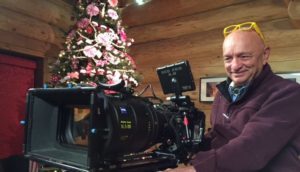 The coverage typically contains a number of analytical sections to make sure all aspects of the project are addressed:
The coverage typically contains a number of analytical sections to make sure all aspects of the project are addressed:TITLE and GENRE: The title of the submission is followed by a statement of what genre it falls into: Fantasy/Adventure, Action, Romance, Drama, Horror, Thriller, Comedy, True Story, etc.
TYPE: Screenplay? Manuscript? Nonfiction? Novel? Treatment?
LOGLINE: This is a one- or two-sentence summary of the story, sometimes referred to as the pitch-line. The best are the shortest: “A man is mistakenly left behind when his ships leaves in a hurry. On Mars.”
SYNOPSIS— This is a straightforward outline of your story, to give the executive an overview of what happens in it. It describes all main plot points and details necessary to understand the story. The preferred length of a synopsis is a page or two. When it’s longer, it’s usually a sign to the executive that the story is too complicated to make a good film.
MARKET POTENTIAL— This section is a comment on the audience the project is aimed at, and whether the story editor feels it fits that market or departs from its needs or expectations, whether it’s a fresh approach to an important story, whether the story is “elevated” by its theme to make it a worthy film or series. Often names successful films that resemble this one.
STRUCTURE— This is an overall comment on how well the structure of the story holds together and accomplishes its purpose, but also where it falters in doing so. Do events unfold cohesively? Are plot points used effectively? Does the story reveal a three-act structure? A typical comment, “There seems to be repetition of the same events over and over again throughout the story.”
CONFLICT— This crucial section indicates whether there is sufficient conflict, both external (in the events of the story) and internal (within the characters). Is the main external conflict of sufficient formidable force to hold audiences? Is it supported by smaller external conflicts, as well as by internal conflict on the part of the characters, especially protagonist and antagonist?
CHARACTER— Is the protagonist fully formed? Do we care about Does he or she have a back story, a mission, and does he or she experience change by the end? Are the supporting characters strong?
DIALOGUE— Is the dialogue unique to each character or do they all sound the same? Does the dialogue move the story along, providing information and containing subtext without being on-the-nose or unbelievable?
PACING— Are scenes or events an appropriate length for their purpose? Is there a sense of build-up, a balance between tension and release, mystery and discovery? Sufficient twists and turns, cliffhangers and surprises? Does each scene or event depend on what came before?
LOGIC— This section talks about plot holes or points lacking sufficient clarity? Do events make sense within the world of the story? For example, do science fiction and fantasy worlds remain consistent with their own set of rules?
CRAFT— Is the writing itself clear, concise, and descriptive? Is there an even balance of action and dialogue? Is proper formatting employed? Are there spelling or grammatical errors?
Yeah, it’s pretty thorough, isn’t it? And here’s the catch: the writer who submitted the story will rarely see the coverage that determines its fate. It’s a real philosophical dilemma. Given that the coverage is so important, and that you won’t see it, how should you behave?
The answer is to know that the coverage, like the troll under the bridge, is there lurking in wait for you–and to disarm it in advance by making sure your story addresses all the categories of expectation.
If, in its current form, it does not, write a treatment of your story and submit that instead.
About Sell Your Story to Hollywood:
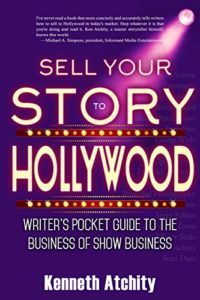 Through the expanding influence of the Internet and the corporatization of both publishing and entertainment, the process of getting your book to the big screen has gotten more complicated, more eccentric, and more exciting.
Through the expanding influence of the Internet and the corporatization of both publishing and entertainment, the process of getting your book to the big screen has gotten more complicated, more eccentric, and more exciting.This little book aims to help you figure out how to get your story told on big screens or small. It’s not going to give you rules and regulations, because they simply don’t exist today. Any rule that could be promulgated has and will be broken. What this book offers instead is nearly thirty years of observation of how things happen in show business, the business of entertainment (better known around the world as Hollywood). Dr. Ken Atchity’s Hollywood experience ranges from writing to managing writers to producing their movies for television and theaters. He’s seen the Hollywood story market from nearly every angle, including legal and business affairs.
Ken Atchity spent his first career as a professor, a career he embarked upon innocently because he wanted to focus his efforts on understanding stories and helping writers get their stories told—and here he is thirty years later still pursuing the same goal—because it’s a worthy and never-ending goal.
He’s made films based on nonfiction books, and made deals for a number of nonfiction stories. But most of his experience lies in turning novels into films. As a lifelong story merchant, what Dr. Atchity develops and sells are “stories,” because he believes stories rule the world. Many of the observations outlined in this book are simply about selling stories to Hollywood.
This pocket guide will help you expedite the transformation of your show business dreams into realities.
Order your copy online here.

Published on July 14, 2019 00:00
July 12, 2019
A Study of 12,000 Screenplays Tries To Answer: What Are Script Readers Looking For?
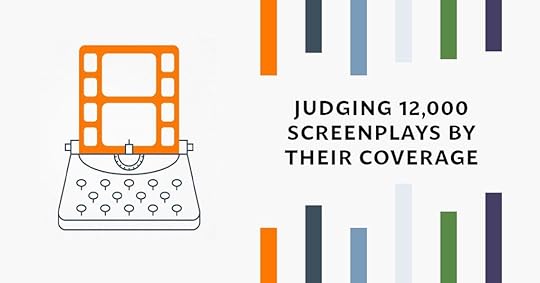
Studios, producers and agencies receive countless spec scripts – original feature length screenplays that weren’t the product of a paid writing assignment. To filter through hundreds and thousands of submissions to determine which are worth considering, or to identify writers with potential, the industry hires professional script readers to rate scripts.
The readers who write “coverage” can play a vital role in screenwriters’ prospects, but what do they think makes for a good script? One the industry’s leading data scientists, Stephen Follows, has attempted to answer this exact question in a year long study, using data from the coverage scores of 12,309 feature film screenplays, that resulted in a 65-page report.
The scripts analyzed were a mix, from amateurs to award winners, all of which were submitted to Screencraft – a service used by screenwriters to submit to contests, fellowships, or pay to have their script covered. According to Screencraft co-founder John Rhodes, ScreenCraft’s freelance readers all have at least one year of experience reading scripts for a major production company, studio, agency or management company, and most of ScreenCraft’s readers are currently employed in the industry as professional readers for top companies including Paradigm, UTA, Amazon, Warner Bros, Blumhouse, The Black List, and Nicholl Fellowships.
Follows spent 12 months combing through anonymized data on ScreenCraft’s servers looking for the most interesting correlations, in an effort to decode a group of largely anonymous industry gatekeepers. In an interview with IndieWire, Follows explained the goal was to answer the question of what readers think a good script contains.
For Follows, one of the most satisfying aspects of his study was that it proved there were supposed “rules” that screenwriters should actually ignore.
“I think it was nice to discount some things that get talked about that I’ve often instinctively felt were people wasting their time and worrying about things that didn’t matter,” said Follows. “It was nice to sort of free up writers from that and just say, ‘look, just do what’s best for your script.’ This isn’t a poisoned thing that if you put it in your script, it’ll drag it down.”
For example Follows showed there was no correlation between the use of Voice Over – often cited as being a storytelling crutch and a sign of bad writing – and a script’s overall rating. He also demonstrated that rules about page length had been way over blown, as scripts ranging between 90 and 130 pages had largely uniform score results. Only at the page length extremes, less than 90 pages and over 130, did scores start to go down
One of Follows biggest findings was in separating scripts by genre. While historical-based screenplays often would score higher, the real finding was that inside each genre there were individual ingredients that readers were looking for.
“It makes sense when you think about it — genre is a promise to the viewer of what to expect in a film,” said Follows. “So for example, catharsis is something that’s important in all scripts, but for family films it was the number one thing, whereas with action films plot was much more important than catharsis.”
Follows’ results show that knowing what is expected and what readers are looking from the genre can be very helpful to a writer. He warns though that this may leave great, out-of-box writing out in the cold.
“Would ‘Reservoir Dogs’ pass a script reader?” questioned Follows. “I don’t know, maybe it would. But truly great scripts that are unusual and break some mold might fail, the way the industry has set things up. Maybe we’re shooting for the middle by looking for this. Maybe not. I don’t know.”
To swear or not to swear is a question screenwriters often debate, especially when writing their action description. Follows’ results show that swearing not only doesn’t hurt a screenplay’s overall score, it actually can help when script readers grade a writer’s “voice.”
You can find the entire report here.
via Chris O'Falt @ Indiewire

Published on July 12, 2019 00:00
A New Study of 12,000 Screenplays Tries To Answer: What Are Script Readers Looking For?

Studios, producers and agencies receive countless spec scripts – original feature length screenplays that weren’t the product of a paid writing assignment. To filter through hundreds and thousands of submissions to determine which are worth considering, or to identify writers with potential, the industry hires professional script readers to rate scripts.
The readers who write “coverage” can play a vital role in screenwriters’ prospects, but what do they think makes for a good script? One the industry’s leading data scientists, Stephen Follows, has attempted to answer this exact question in a year long study, using data from the coverage scores of 12,309 feature film screenplays, that resulted in a 65-page report.
The scripts analyzed were a mix, from amateurs to award winners, all of which were submitted to Screencraft – a service used by screenwriters to submit to contests, fellowships, or pay to have their script covered. According to Screencraft co-founder John Rhodes, ScreenCraft’s freelance readers all have at least one year of experience reading scripts for a major production company, studio, agency or management company, and most of ScreenCraft’s readers are currently employed in the industry as professional readers for top companies including Paradigm, UTA, Amazon, Warner Bros, Blumhouse, The Black List, and Nicholl Fellowships.
Follows spent 12 months combing through anonymized data on ScreenCraft’s servers looking for the most interesting correlations, in an effort to decode a group of largely anonymous industry gatekeepers. In an interview with IndieWire, Follows explained the goal was to answer the question of what readers think a good script contains.
For Follows, one of the most satisfying aspects of his study was that it proved there were supposed “rules” that screenwriters should actually ignore.
“I think it was nice to discount some things that get talked about that I’ve often instinctively felt were people wasting their time and worrying about things that didn’t matter,” said Follows. “It was nice to sort of free up writers from that and just say, ‘look, just do what’s best for your script.’ This isn’t a poisoned thing that if you put it in your script, it’ll drag it down.”
For example Follows showed there was no correlation between the use of Voice Over – often cited as being a storytelling crutch and a sign of bad writing – and a script’s overall rating. He also demonstrated that rules about page length had been way over blown, as scripts ranging between 90 and 130 pages had largely uniform score results. Only at the page length extremes, less than 90 pages and over 130, did scores start to go down
One of Follows biggest findings was in separating scripts by genre. While historical-based screenplays often would score higher, the real finding was that inside each genre there were individual ingredients that readers were looking for.
“It makes sense when you think about it — genre is a promise to the viewer of what to expect in a film,” said Follows. “So for example, catharsis is something that’s important in all scripts, but for family films it was the number one thing, whereas with action films plot was much more important than catharsis.”
Follows’ results show that knowing what is expected and what readers are looking from the genre can be very helpful to a writer. He warns though that this may leave great, out-of-box writing out in the cold.
“Would ‘Reservoir Dogs’ pass a script reader?” questioned Follows. “I don’t know, maybe it would. But truly great scripts that are unusual and break some mold might fail, the way the industry has set things up. Maybe we’re shooting for the middle by looking for this. Maybe not. I don’t know.”
To swear or not to swear is a question screenwriters often debate, especially when writing their action description. Follows’ results show that swearing not only doesn’t hurt a screenplay’s overall score, it actually can help when script readers grade a writer’s “voice.”
You can find the entire report here.
via Chris O'Falt @ Indiewire

Published on July 12, 2019 00:00
July 11, 2019
July 10, 2019
Navigating Life in the Fast Lane: Working in showbiz, attention writers, producers, agents, or executives-- some tips from an insider
by Ken Atchity
Reprinted from Fade In Magazine

While most of the world conjures up images of showbiz types lounging poolside with cellphones all day and schmoozing at star-studded premieres throughout the night, those of us who actually work in the industry know all too well the enormous challenge of simply keeping your head above water while swimming with sharks. In this business, where everything goes by messenger warrant your full attention, have him meet with someone else and being "swamped" is the norm, free time is a luxury few can afford - not to mention a good night's sleep.
So how does the agent return those 123 calls from last week (including the one from his mother)? How does the creative exec complete her notes on that script being rushed into production at month's end? How does the writer have time for pitch meetings, development meetings, phone calls, treatments, page-one rewrites and that new spec? In short, how does any Hollywood player have time to even enjoy the wonderful life the rest of the world assumes we have?
The key to success (and sanity) is to remain flexible while simultaneously being relentlessly organized. And this doesn't just mean organizing your workload because, as any assistant will tell you, that work is infinite. Manage your time and you can manage your life. Knowledge may be power in Hollywood, but time is the lifeblood of the most successful players.
Here are a few suggestions to make your life a little easier, whether you're a writer, producer, agent, or executive.
HAVE AN AGENDA Once a week, in an inspiring place far away from the daily grind, schedule thirty minutes to examine and reschedule your goals. Write out a list of priorities and give each a deadline. Every week, revisit this agenda and revise it as necessary to keep your priorities current. This will keep you in greater control of your time and make the decision process easier.
THE FINE ART OF DELEGATION Know your limits and maintain them. Of course you can do it. But are you the only one who can do it? If not, whatever it is, delegate it and pass it along to someone else- Let that be the first thought with every task that crosses your path. Otherwise you'll soon be trapped under an avalanche of self-generated work. The psychologist Carl Jung had a sign over his desk that read Yes No Maybe to remind him that every maybe will turn into a yes if you don't immediately recognize it as a no. The maybes swallow up most of our time.
PHONES, PHONES, PHONES Be a call-maker. not a call-taker. Call when you feel like it, and when you need to. It's a simple matter of being proactive versus reactive. When you've swapped calls more than three times - assuming you're not just avoiding the caller - schedule that phone conversation. With interminable ramblers, tolerate the rambling for five minutes, then beg off the call. They'll get the picture and get to the point the next time they catch you. Turn your phone off during meetings. If your visitor isn't important enough to warrant your full attention, have him meet with someone else - or meet by phone.
MAIL AND E-MAIL Take care of correspondence immediately - with a note, letter or phone call - and discard junk mail before it even reaches your desk. Redirect eighty percent of your e-mail to others. Answer e-mall immediately only if it's shorter than four lines. If it's longer, print it out and add it to your reading pile, instead of reading it on the screen and becoming further enslaved to the reactive mode.
MEETINGS Have no meeting until you're clear on what you want to accomplish. Avoid unnecessary business lunches. Not only do they eat up hours, they also make the rest of the day less productive. Instead, meet for drinks, breakfast, or reschedule half of your meetings each week to take place by telephone instead of in person. If you're the traveler, you'll likely save almost two hours per meeting in commute lime.
UNPLAN YOUR LIFE Don't let your personal life slip by. As John Lennon said, "Life is what happens when you're busy making other plans-" Remind yourself to relax. Take time away from it all. Turn the phone off for a day. Scheduling time to do nothing, or learning a new hobby, is like taking out life insurance payable, in advance, to yourself.
MANAGING YOUR MIND Time management for the Type C personality (C for creative and/or crazy) begins with a practical everyday expression of mind-management. Continually remind yourself that you are privileged to be playing on the most exciting gameboard in the world - the one that everyone back home would give precious body parts to play on.
Winning an Academy Award is a dream. The only way to make dreams come true (excluding blind luck) is to manage goals (getting the movie out of development and into pre- production), and focus on objectives (getting the story straight, finding a director), By reminding yourself of what you've accomplished, you can keep your head together and succeed in managing your time.
Tip for the day: Associate with positive people, and stop associating with negative people. Nothing is more helpful than a positive support group, and nothing more damaging than constant negative reinforcement from "friends" and family. Make whatever adjustments are necessary to reduce or eliminate your contact with the naysayers.
Once upon a time I resigned my position as tenured professor of comparative literature at Occidental College in Los Angeles to pursue a new, full-time career as freelance writer, independent producer, literary manager, and entrepreneurial "story merchant."
For the Type C, or creative, personalities who want their work to "fill" their deepest creative urges, this is the frontline guide to making the transition from a secure and soulless job to a life built around a creative dream. Individuals learn how to follow the mind's eye to construct a life that conforms to personal vision, steal time to make creative dreams come true, use as assets the resources around them, and turn creative goals and objectives into an effective life plan.

Published on July 10, 2019 00:00
July 8, 2019
E.B. White on Writing With Style

In the final chapter of The Elements of Style (Allyn & Bacon, 1999), White presented 21 "suggestions and cautionary hints" to help writers develop an effective style. He prefaced those hints with this warning:
Young writers often suppose that style is a garnish for the meat of prose, a sauce by which a dull dish is made palatable. Style has no such separate entity; is nondetachable, unfilterable. The beginner should approach style warily, realizing that it is himself he is approaching, no other; and he should begin by turning resolutely away from all devices that are popularly believed to indicate style—all mannerisms, tricks, adornments. The approach to style is by way of plainness, simplicity, orderliness, sincerity.
Writing is, for most, laborious and slow. The mind travels faster than the pen; consequently, writing becomes a question of learning to make occasional wing shots, bringing down the bird of thought as it flashes by. A writer is a gunner, sometimes waiting in his blind for something to come in, sometimes roaming the countryside hoping to scare something up. Like other gunners, he must cultivate patience; he may have to work many covers to bring down one partridge.
You'll notice that while advocating a plain and simple style, White conveyed his thoughts through artful metaphors.
read more

Published on July 08, 2019 00:00
July 6, 2019
How China's box office dominance changed the game

It should be no surprise, though, that Hollywood studios are now repeatedly and generously catering to different continents. It is just an honest reflection of how the box office has shifted over the past 15 years, as international returns have now long eclipsed domestic numbers from the United States.
Of course, it wasn’t always this way. As recently as 2004, the American box office actually accounted for 51.3 per cent of worldwide takings.
Fast forward to 2018 and the United States’s $11.9 billion equated to just 28.5 per cent of global takings.
The main reason for this change has been the emergence of China as a box-office powerhouse. For decades, the country had little to no interest in releasing American movies. It even deployed stringent rules restricting films from the US being shown.
But over the past decade, these regulations have become more lenient and the country’s interest in cinema has grown so rapidly, that not only does China reportedly already have the most movie screens in the world, but it is expected to overtake the US as the largest movie market on the planet by 2022. The huge potential of China’s box office means Hollywood films of recent years have been specifically altered to suit that country’s audiences. Michael Bay’s decision to shoot parts of 2014’s Transformers: Age of Extinction in China helped it amass $320m in the country, $75m more than it did in the US and 29 per cent of its overall takings of $1.1bn.
Just last year, both Jason Statham’s The Meg and Dwayne Johnson’s Skyscraper also thrived with the same approach. Thanks to Chinese megastar Li Bingbing and a prominent scene set at Sanya Bay, The Meg, which was stuck in development for more than 20 years before Chinese companies Gravity Pictures and Flagship Entertainment teamed up with Warner Bros to co-produce it, ultimately grossed $153m in China compared to $145m in the US, all of which helped it to a total of $530.2m worldwide.
Meanwhile, the US accounted for about a quarter of Skyscraper’s $304m gross, with $98.4m coming from China as The Towering Inferno and Die Hard hybrid’s international ensemble was rounded off by Singapore’s Chin Han, Hong Kong’s Byron Mann and Taiwan’s Hannah Quinlivan.
Read more

Published on July 06, 2019 00:00
July 4, 2019
Happy Fourth of July!
Published on July 04, 2019 00:00
July 2, 2019
Hamilton Spectator - OPINION by Dr. Dave Davis
An Endless Game of Scrabble - and the story of a marriage. The little things mean a lot but so does coming up with a 50-point word.
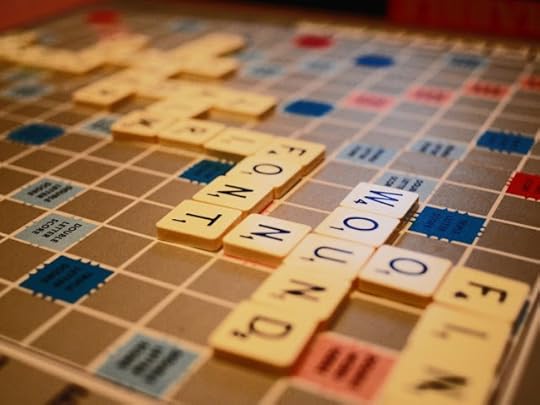
"I have five O's and a Y," she says. "How can you win a game with that?"
We're playing Scrabble for maybe the five thousandth time in our marriage. Most evenings, just as the day ends and before what's-his-name appears to give us the evening news, we get the game out. We have three, (count'em, three) Scrabble games: the old board, a little damaged but just fine; the brand-new Extra-large thing where you can get scores in the high hundreds; and the little Travel Scrabble thing.
I like the travel game best of all. It's attached to its own little case, zippered, eminently packable. It's a little dirty, dusty with the fine sand of Dubai and the pollution of Hamilton and elsewhere (this guy has earned his travel moniker). Neither of us can remember who bought the game: the kids? Me? Her? My personal favourite theory is Santa. It may have lost a T or R along the way, but it works just fine. The really great thing is that the game came with a couple hundred little scoring sheets and we've dated and kept them, writing where we were whenever we played. Just for fun one day, I went through the score sheets, when the lady wasn't around. The earliest was dated 1996. Since then, believe it or not, the little sheets documented a couple of hundred games: in the end, we had won and lost almost exactly the same number.
I've tried to figure out why I like the game so much.
I think, part of the time, it's my love of words. The feel of them in my mouth, the sound when they emerge. I use them a lot (the lady with the five O's and a Y would say too much), and never get tired of seeing the letters arrange and rearrange themselves on a page or laptop. They evoke memory and feeling; they express hope and sadness. Years ago I read former U.S. Sen. Samuel Hayakawa's Language in Thought and Action. What I thought was going to be a dry, academic sort of thing turned out to be really interesting, even provocative: how language plays a role in human life; how it unknowingly shapes our thinking; how it alters racial, political, commercial and religious beliefs. How it can create prejudice. Our American friends especially are exposed daily to the lessons of language. Agree with it or not, you can see the results.
Then I think, I like the game because it reminds me of our travels. We've had quite a lot of that, as it turns out. Our favourite line from Moon River is "two drifters," and we're grateful that the currents of life have taken us pretty far, with great luck. We write the place of the game — a train in Europe, the front porch of a cottage in the Dandenongs (near Melbourne Australia), a balcony in Washington DC. They're like the little magnets on the fridge door, a kind of travel diary. (We have so many fridge magnets that I worry one day we won't be able to get the door open).
They're also the diary of a marriage, maybe why I like it most. The often-even scores, the way a marriage should be. The excitement when she racks up a big one (like an "X" in the corner or when she uses All Seven Letters), the way she complains about "all those vowels," then, two moves later, cranks up 50 points on a huge word, triumph in her eyes like something on a Game of Thrones. The way we argue about a word. "That's a proper name," I say, calmly. I think calmly anyway. "No it's not!" Also calmly. Sure thing, you bet.
To resolve that difficulty a few years ago, we bought the Scrabble Dictionary, worth every penny; the thing could be a marriage counsellor. The poor thing has been left out in the rain, gotten trampled, has a part of its cover missing. It looks like something you'd find in an archeological dig, but it helps resolve what you might call difficulties. We got a new one this year but, you know what? I like the old guy just fine. In fact, I like the whole thing just fine: the travel and at-home versions, the complaints about too many vowels, the arguments about words, the words themselves. The look of triumph in her eyes.
Sometimes it's the little things — the smile of grandchild, the hugs of a daughter, the one-on-one with a son, the quiet routine — that mean the most.
And oh yes, definitely the two of us together, playing an endless game of Scrabble. Worth millions. Although, I gotta say, "hydropox" was a stretch. It did use up a "y' and a couple of "o's" though.
Dave Davis, MD, is a retired family doc and medical educator. His first novel, "A Potter's Tale," published by Story Merchant Books, Los Angeles, is available on Amazon in Canada, CA, and the US. You can visit him at www.drdavedavis.com; or follow him @drauthor24. If you want to follow the novel's story line and its clues, like the Potter's Facebook page: https://www.facebook.com/apotterstale/


"I have five O's and a Y," she says. "How can you win a game with that?"
We're playing Scrabble for maybe the five thousandth time in our marriage. Most evenings, just as the day ends and before what's-his-name appears to give us the evening news, we get the game out. We have three, (count'em, three) Scrabble games: the old board, a little damaged but just fine; the brand-new Extra-large thing where you can get scores in the high hundreds; and the little Travel Scrabble thing.
I like the travel game best of all. It's attached to its own little case, zippered, eminently packable. It's a little dirty, dusty with the fine sand of Dubai and the pollution of Hamilton and elsewhere (this guy has earned his travel moniker). Neither of us can remember who bought the game: the kids? Me? Her? My personal favourite theory is Santa. It may have lost a T or R along the way, but it works just fine. The really great thing is that the game came with a couple hundred little scoring sheets and we've dated and kept them, writing where we were whenever we played. Just for fun one day, I went through the score sheets, when the lady wasn't around. The earliest was dated 1996. Since then, believe it or not, the little sheets documented a couple of hundred games: in the end, we had won and lost almost exactly the same number.
I've tried to figure out why I like the game so much.
I think, part of the time, it's my love of words. The feel of them in my mouth, the sound when they emerge. I use them a lot (the lady with the five O's and a Y would say too much), and never get tired of seeing the letters arrange and rearrange themselves on a page or laptop. They evoke memory and feeling; they express hope and sadness. Years ago I read former U.S. Sen. Samuel Hayakawa's Language in Thought and Action. What I thought was going to be a dry, academic sort of thing turned out to be really interesting, even provocative: how language plays a role in human life; how it unknowingly shapes our thinking; how it alters racial, political, commercial and religious beliefs. How it can create prejudice. Our American friends especially are exposed daily to the lessons of language. Agree with it or not, you can see the results.
Then I think, I like the game because it reminds me of our travels. We've had quite a lot of that, as it turns out. Our favourite line from Moon River is "two drifters," and we're grateful that the currents of life have taken us pretty far, with great luck. We write the place of the game — a train in Europe, the front porch of a cottage in the Dandenongs (near Melbourne Australia), a balcony in Washington DC. They're like the little magnets on the fridge door, a kind of travel diary. (We have so many fridge magnets that I worry one day we won't be able to get the door open).
They're also the diary of a marriage, maybe why I like it most. The often-even scores, the way a marriage should be. The excitement when she racks up a big one (like an "X" in the corner or when she uses All Seven Letters), the way she complains about "all those vowels," then, two moves later, cranks up 50 points on a huge word, triumph in her eyes like something on a Game of Thrones. The way we argue about a word. "That's a proper name," I say, calmly. I think calmly anyway. "No it's not!" Also calmly. Sure thing, you bet.
To resolve that difficulty a few years ago, we bought the Scrabble Dictionary, worth every penny; the thing could be a marriage counsellor. The poor thing has been left out in the rain, gotten trampled, has a part of its cover missing. It looks like something you'd find in an archeological dig, but it helps resolve what you might call difficulties. We got a new one this year but, you know what? I like the old guy just fine. In fact, I like the whole thing just fine: the travel and at-home versions, the complaints about too many vowels, the arguments about words, the words themselves. The look of triumph in her eyes.
Sometimes it's the little things — the smile of grandchild, the hugs of a daughter, the one-on-one with a son, the quiet routine — that mean the most.
And oh yes, definitely the two of us together, playing an endless game of Scrabble. Worth millions. Although, I gotta say, "hydropox" was a stretch. It did use up a "y' and a couple of "o's" though.
Dave Davis, MD, is a retired family doc and medical educator. His first novel, "A Potter's Tale," published by Story Merchant Books, Los Angeles, is available on Amazon in Canada, CA, and the US. You can visit him at www.drdavedavis.com; or follow him @drauthor24. If you want to follow the novel's story line and its clues, like the Potter's Facebook page: https://www.facebook.com/apotterstale/

Published on July 02, 2019 00:00

